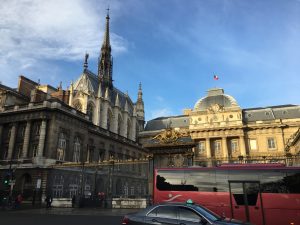
We have been in a lot of churches over the course of our travels but nothing equals Sainte Chapelle with its stain glass displays of Biblical stories. Built at the direction of King Louis IX over the course of seven years, it was and completed then consecrated on April 26, 1248. Built to hold the King’s collection of holy relics from the Crusades, it has become a must see destination for anyone visiting Paris. The Crown of Thorns, however, is now at Notre-Dame.
Located not far from the Cathedral of Notre-Dame it was originally part of the King’s Palace, it was originally intended to house the relics acquired by King Louis IX he acquired including fragments of the True Cross, the Holy Lance and the Crown of Thorns. The Church is divided into two levels –
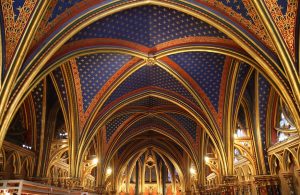
a lower level was a place of worship for the Palace Staff and others while the
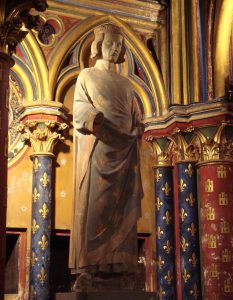
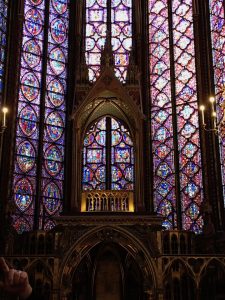
upper level that is truly monumental and sumptuously decorated with stain glass was for the King and Regent Queen. Around the upper level are among the finest of their type in the world, are the great stained glass windows.
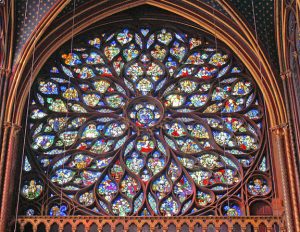
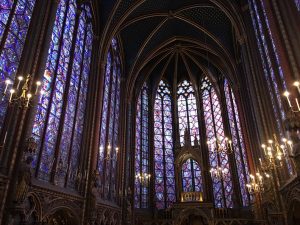
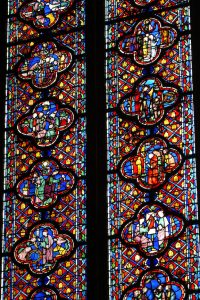
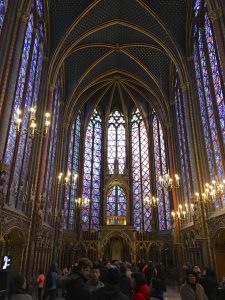
When you first walk in, on the lower level, you see the structure of the building, some stain glass above the lower walls and a statue of Saint Louis. Along one side are souvenir stands and some commentary but nothing really dramatic. However, after navigating the spiral stairs (that were originally for the servants as the King entered at the upper level) you get to the main event. Fifteen huge mid-13th century windows fill the nave and apse while a large rose window with flamboyant tracery dominates the western wall. There are 1,113 stained glass windows! Much of the chapel, as it appears today, is a re-creation, although nearly two-thirds of the windows are authentic.
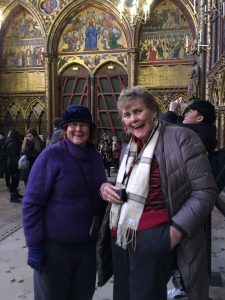
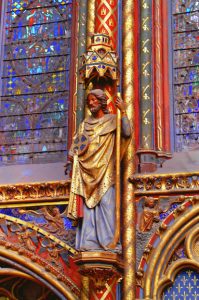
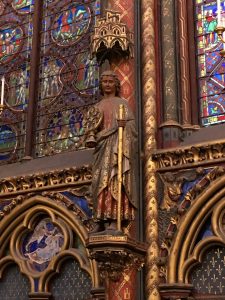
The Audio guide takes you though most of the windows, the sculpture and other features of the room. We spent the better part of a couple of hours going over the place – listening to the audio guide, reading the information and generally taking it all in. Each stain glass widow tells a story – most from the bible but a couple about King Louis and his life. All in all it is really an impressive place – almost overwhelming with the beauty.
After we finished up with Saint-Chapelle we went next door to the Conciergerie.
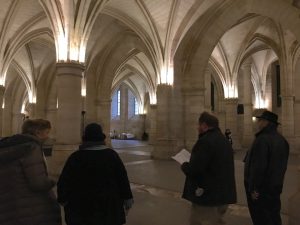
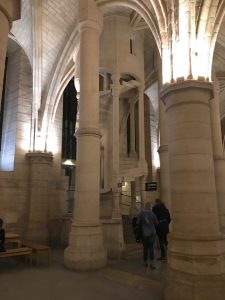
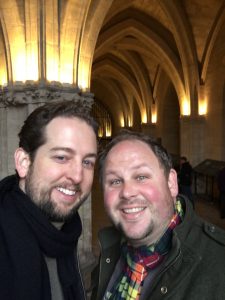
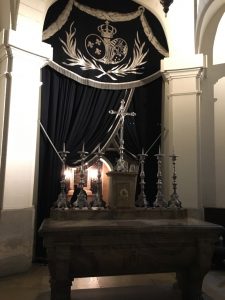
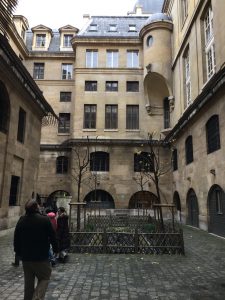
Formally part of the palace it became a prison, a revolutionary court and Marie Antoinette’s prison until her trial and execution. The upper floors of the building now house various courtrooms and government offices while the basement has representative rooms showing the cells that were used and information about the revolution and the Reign of Terror.
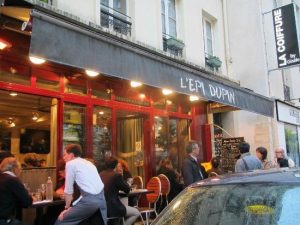
After finishing up here we headed out for lunch across the Seine river at L’Epi Dupin. This was a recommendation from a friend in LA, Randy, and it was not a disappointment at all.

Ryan acquired the chef’s cookbook. We chose to have the tasting menu and three bottles of wine!

After enjoying our lunch, we took the bus to the Eiffel Tower arriving early evening (6ish or so).

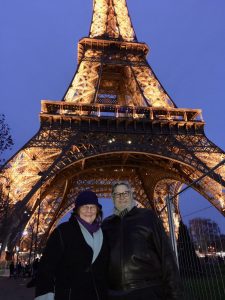
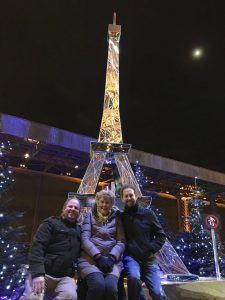
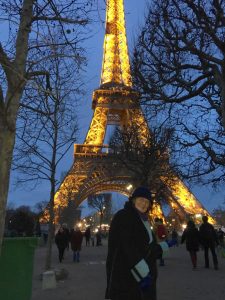
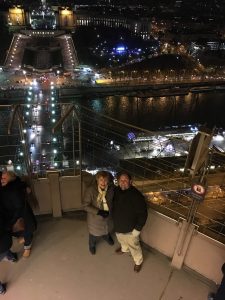
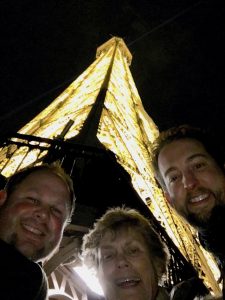
Janeen and I headed back to the apartment while Ryan, Chris and Claudia waited in line for tickets to go up the tower to the second level of observation.